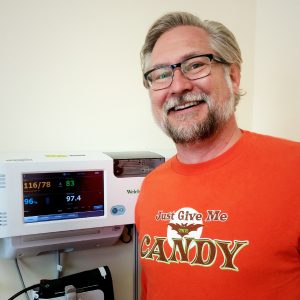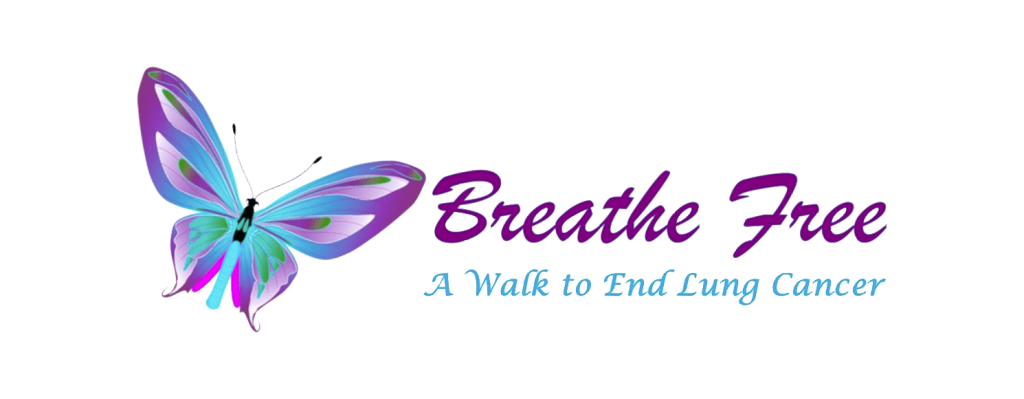
So I went with the most frightening costume I could come up with: a candy fiend. After all, little is as horrifying as someone coming off of a sugar binge. And my paunch is perfectly highlighted by the tight-fitting shirt that I have now worn for somewhere in the range of 6 to 10 Halloweens. (What can I say, some things are simply classically insidious.)
While a few years ago the idea of a giant tumor might have been amusing to me, and the notion of cancer in general seemed like a properly frightful subject, the story around these has changed for me. Hollywood, of course, still relies on cancer as it’s go-to meme for unsettling disease requirements, but then Hollywood is creatively lazy and uses the most basic shorthand it has for easy emotional manipulation.
The Truth About Cancer
The truth about cancer is, as we have progressively been discovering for the past few decades, much more complicated than that. Already the majority of cancer patients in developed countries (where the most modern treatments are available) surpass the typical five-year-survival mark and the longer out past five years a patient lives, the longer the odds are that the patient will continue being stable or cancer-free. Many cancer patients can be cured or managed with relative ease. And the future of cancer is going to be easier still. Certainly, some of this will have to do with the medical system getting modernized, especially in terms of for-profit insurance and pharmaceutical costs (expect an upcoming post to deal with that in more scathing detail). But even now the narrative of cancer is changing rapidly.
It simply lacks the scares of yesteryear.
Gone is the instant assumption of cancer as a death sentence — or at least that should be the case. Of course, there are still many in the “alternative cancer treatment” industry who have a vested interest in fearmongering. For those opportunistic (dare I say, psychopathic) individuals, frightening patients and caregivers with the old tropes of “slash, burn, poison” is a standard sales tool. It relies on the old narrative, the one borne of the early days of modern cancer treatments post WWI, when mustard gas helped opened the door to new theories on chemotherapy. It plays upon the memories of radical surgeries — particularly those extreme mastectomies conducted before it was fully understood how tumors metastasized in the tissue — and the disfigured bodies left behind, often with little hope of long-term survival. And it indulges the lingering mental images of burned flesh and radiation poisoning endemic to the experimental treatments from the 1940s when the dangers of radiotherapy were still being ascertained and long before the machines to administer it were perfected. All of this is ancient history in the relatively short story of modern cancer science.
Today, of course, radiation can be tightly controlled with the accuracy of a scalpel and virtually no damage to surrounding tissue. New chemotherapies have lessened side-effects and better results for many patients — and are much more cancer-specific (which is essential considering that cancer is really hundreds of different diseases that often require different treatments). My cancer, for example, appears to respond exceptionally favorably to my chemotherapy, but might not have to a different one. And surgery, let’s just say, is not only more technically proficient (especially with robotic and laser assistance), but the accumulated knowledge of how cancer spreads has changed many aspects of the surgical approach.
In short, medical treatment is often less painful and less debilitating than anything the “alternative” providers can offer — and with one serious advantage: medical treatment actually works.
Tales from the Dark Side
The truly unsettling thing is the needless pain and suffering inflicted upon patients of these “alternative” providers under the notion of “healing,” a term used euphemistically to refer to the symptoms of cancer progression while providers attempt to dull them with palliative care. It is a con to get patients to believe they are doing better, purging the toxins from their bodies, rebalancing their systems. The truth about cancer treatment, however, is that healing does not hurt. Healing is supposed to feel better — and it does, even with the difficulties many patients experience with chemo. Even with the nausea and weakness that may accompany lengthy radiation treatments. Even with a more extensive surgery or resection. Because our bodies do heal. And while we might be sore for some weeks, on the other side of this relative inconvenience the patient may well find better health than prior to the cancer, and at the very least the expectation of longer life a and better quality of life than the other options could provide.
And let’s not forget the real miracle of earlier and more accurate diagnostics. This is one of the shining lights of modern cancer science. Treatments for early stage cancers are always easier and account for a much larger percentage of patients than ever before. As awareness grows, so have instances of early diagnosis. But the sad byproduct has been an opening for more snake oil salesman and unethical clinics pretending to offer legitimate cancer care under the guise of natural remedies or cutting-edge science that simply has not been embraced by the “establishment.”
Make no mistake, the true tale of terror here is being created by these predatory hucksters and the lies they propagate about both the safety of their treatments and the dangers of modern medical care. If the cancer narrative is updated to reflect the realities of current care, the fright factor should not only be greatly diminished but for many patients, it might even go away entirely.
November, which begins tomorrow, is Lung Cancer Awareness Month. I will be speaking at the First Annual Breathe Free Walk To End Lung Cancer in Fort Mill, South Carolina. You can donate to the walk, which is jointly sponsored by the American Lung Association and the American Cancer Society, and funds will support research into new treatment options.

If this post resonates with you, please consider supporting me by subscribing to my feed on Patreon, or a one-time donation through PayPal. Follow me on Twitter, Facebook, Tumbler and many other fancy social sites or apps. Please share my posts to groups you are involved with on Reddit or Google+ or anywhere else that you feel it will help or enlighten or inspire another reader. (Sharing buttons are below the post!)
Thank you!
One thought on “Chemotherapy Horrors for Halloween and the Truth About Cancer”